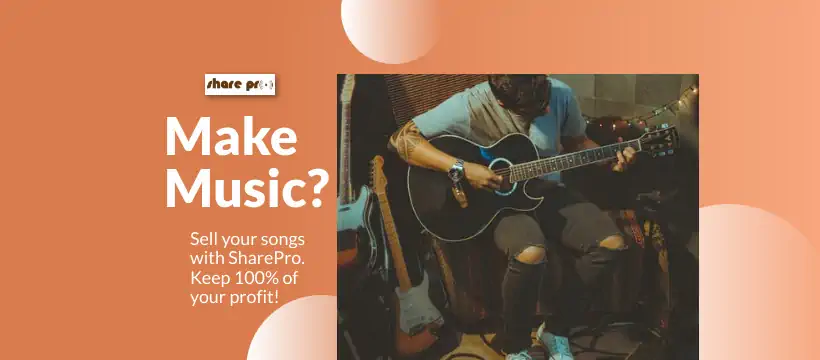The Challenges of Touring and Performing As a Musician
We cover all the pluses and minuses of touring as a recording artist.
As technology has advanced, the music industry has undergone significant changes, and independent artists are no exception. Thanks to online streaming and distribution platforms, indie musicians have gained global recognition and exposure. However, despite this increased exposure, record sales can be scarce, making live performances an essential source of income for many musicians.
In a constantly evolving industry, touring and performing live on stage has become even more critical in recent years, especially after the impact of the COVID-19 pandemic.
Touring as an indie musician comes with its own set of challenges, from supply shortages to uncertain returns on investment. It's important to be aware of these challenges and to have a plan in place to overcome them. That's where this article comes in. We aim to provide a comprehensive guide for indie musicians looking to tour and perform live, covering both the challenges and the benefits of the process.
With our help, you'll gain a better understanding of what it takes to tour and perform successfully, from dealing with the unexpected to building a solid and loyal fan base. By the end of this article, you'll be equipped with the knowledge and insights you need to embark on your own tour and make a lasting impact in the world of live music.
Lack of Support and Financial Struggling
Some of the most relevant downsides when touring involve these two aspects. As a matter of fact, the COVID-19 pandemic forced inevitable and significant changes in the touring industry. As a consequence, today is a tough task to access labor for touring personnel and staff.
As the number of artists increases, the supply of resources to support them has struggled to keep up. The demand is unmet which leads to loads of artists touring but not enough essentials available. Besides, the lack of supplies leads independent artists to find issues such as sound problems and difficulties with venues.
In addition to that, there is another concerning issue: the investment the artists have to do when deciding to make a tour. Nowadays, touring is riskier than years before. After the lockdown, just like every other field, the music industry has seen a lot of inflation. The matter with this is that deals haven’t changed but they became more expensive. Moreover, the risk of a show being canceled is always present and will cause the artist to lose money which will be difficult to recover.

Last but not least, competition is also a factor that can impact ticket sales and income for touring artists. Bands can experience not only canceled shows but also low ticket sales, which can be even more harmful to their income.
It's important to be aware of these challenges and to have a plan in place to address them. By understanding the risks involved and taking steps to mitigate them, indie musicians can increase their chances of success when touring and performing live. Whether it's by finding alternative sources of funding or seeking out support from fans and industry professionals, the key to overcoming these challenges is to stay focused and proactive.
How to Finance an Indie Music Tour
So far, we have highlighted the difficulties and challenges of insufficient support and financial issues when touring as an indie musician. But, how can musicians effectively finance their tours and overcome these obstacles?
There are several ways to finance a tour and one popular alternative is crowdfunding. Sites such as Indiegogo and Kickstarter have recently become well-received among indie musicians as powerful tools to raise funds. These platforms allow groups to carry out their projects and tours by connecting with their audiences who could support them just by contributing directly with money.
These fanatic devotees may also receive early access to the artist’s music, merchandise, or more. Besides, crowdfunding can be a great way for indie musicians to secure the funds they need to tour and perform while building a community of passionate supporters. Moreover, there are similar alternatives like Patreon or BuyMeACoffee to accept support and memberships from their fans.
Another good option is to get a sponsorship. In this case, it may be a bit more complicated because you will need to have a name made if you want a huge level of funding but if that’s not the case, a local business could be a rentable alternative to help you. Of course, the company whether small or large won’t be willing to lose money so it is important to negotiate in order to get the best terms for both sides.
Finally, it's important for musicians to carefully plan their finances to ensure a smooth and successful tour. Creating a budget that outlines their projected income, expenses, and surplus funds could be an amazing idea. In that way, they can guarantee that they have sufficient resources for all the necessary tour-related costs, such as gasoline, musical instruments, meals, and any other expenses. By doing this, independent artists can reduce the always latent financial stress and focus on delivering outstanding performances.
Key Considerations for Independent Musician Tours
Facing a tour and performing live is always a rewarding experience for musicians of every kind. Nevertheless, is important to plan it carefully because being successful and meeting the intended goals requires dedication. To conclude, we have a list of tips to help you have an enlightening tour experience.
To start, promotion is crucial for a successful tour. It's important to get the word out about your upcoming live performances in advance. Utilizing social media and reaching out to radio stations can help increase visibility and generate excitement.
When you arrive in a new city, don't miss out on the opportunity to connect with local musicians and bands. Collaborating with these groups in their shows can be a great way to reach new listeners and build your network. Additionally, this can help create a sense of community among musicians and increase exposure for both parties.
Innovation can be a key factor in attracting audience attention and standing out from other musicians. Consider performing in unique locations such as art galleries, parks, or even libraries and private houses. These alternative venues can help you differentiate yourself from other musicians who perform at typical festivals.
As a musician, it can be difficult to generate income from album sales or digital reproductions. To help make money while on tour, consider investing in merchandise. Selling items like t-shirts, hats, or stickers can not only help supplement your income but also leave a lasting impression on each city you visit.

When reaching out to promoters or venues, being brief and direct in your approach can be helpful due to the voracious competition existent. Provide only relevant information about yourself or your project and make it clear why working with you would be an attractive opportunity for them. This can help ensure that your message is received and increase the chances of securing a booking.
Finally, the pacing is important when scheduling shows. Overloading your schedule with too many shows before planning a tour can lead to burnout and loss of interest from your audience. Instead, offer them a taste of your material and create anticipation by letting them know what you're working on in the future. This way, you can create hype and keep them engaged and excited for your next performance.
Blog Article Tags
schedule travel logistics fatigue performance anxiety audience engagement financial sustainability competitionMore Articles
Where To Find Good Indie Music - If you're a long time fan or first time listener of Indie music, we'll show you the best methods for discovering the music you love.
How To Get a Job at a Record Label - Getting a job at a record label is different than getting most jobs, here's why.
Here's The Average Musician's Salary Of Today - Musicians earn surprisingly diverse salaries - we discuss their average incomes.
How To Find an Independent Artist Booking Agency - With a little research and due diligence you can find an experienced team to help take your career to new heights.
How To Build an Indie Artist Business Plan - Crafting the perfect business plan can help you establish clear goals.



